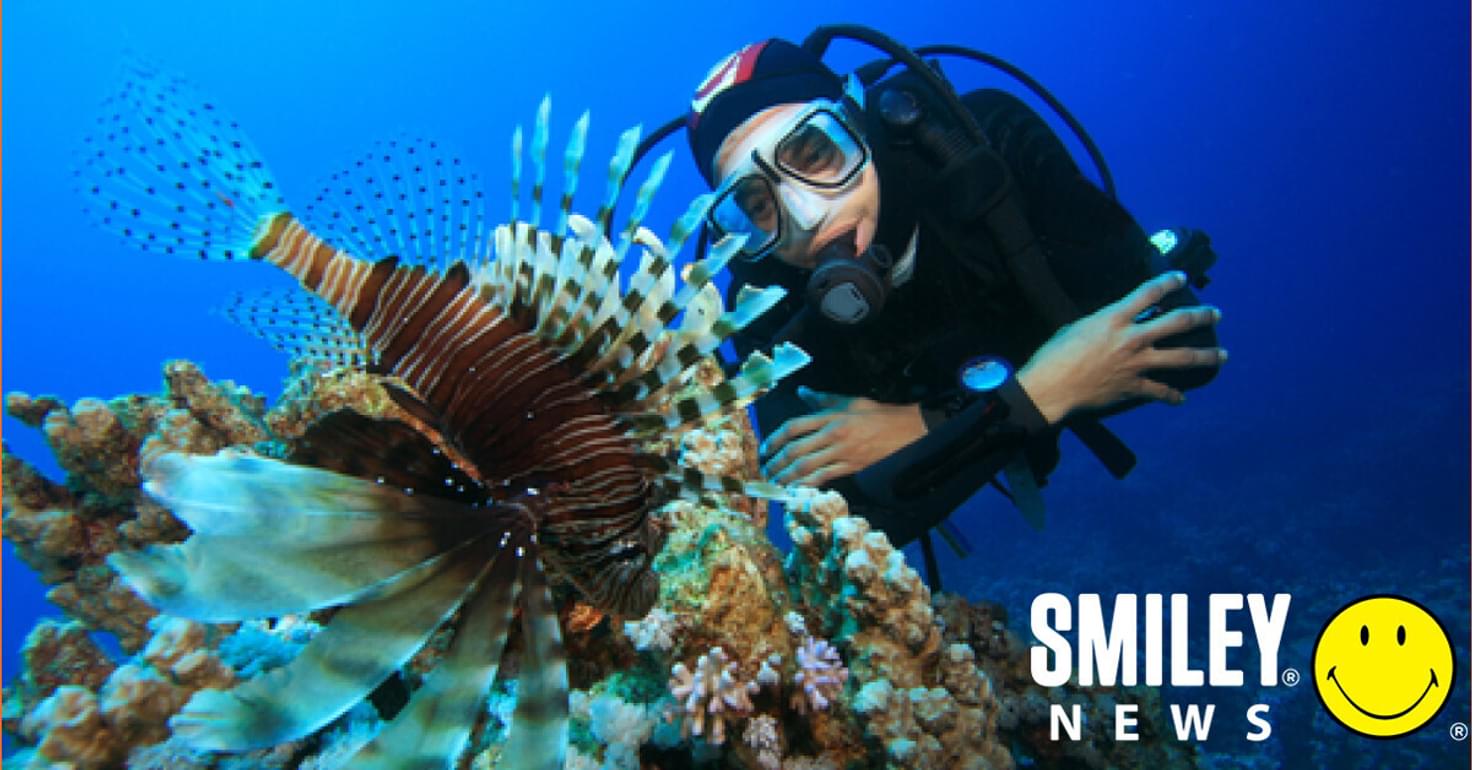
Words by Smiley Team
In good news for marine life, philanthropists are backing a new conservation project to protect at least 30 per cent of our oceans by 2030, a global target expected to be officially adopted at the United Nations Biodiversity Conference this October.
The initiative, The Blue Nature Alliance, will cover 18 million square kilometers (seven million square miles) of ocean, twice the area of continental US and more than the landmass of South America. This makes it one of the world’s largest ocean conservation projects.
"A healthy ocean is key to our existence," said Aulani Wilhelm, senior vice president of Oceans for Conservation International. "It provides nutrition and employment for a majority of people around the world and half of the oxygen each of us breathes.
“Yet significantly less of our ocean is protected when compared to land. We must collaborate globally, in partnership with local governments and indigenous peoples, to make the conservation of our ocean a priority. The time is now to take big practical action to move this work forward."
The project launched thanks to founding organisations Conservation International, The Pew Charitable Trusts, and the Global Environment Facility, alongside philanthropists’ foundations Minderoo Foundation, and the Rob and Melani Walton Foundation.
"Melani and I care deeply about the future of our planet and the communities that depend on nature for their health, livelihoods and culture," said Rob Walton, co-founder of the Rob and Melani Walton Foundation. "That's why we are pleased to be part of the Blue Nature Alliance - which brings together philanthropists, businesses, governments and NGOs to substantially increase and improve ocean conservation. Now is a critical time. The ocean is under immense pressure, and we all have a responsibility to help safeguard it."
In addition to its five founding organisations and philanthropists, the network boasts conservation experts, scientists, and financial strategists. These include Big Ocean, the Global Island Partnership, the Gordon and Betty Moore Foundation, the Murphy Family Foundation, Nekton, Oceana, Ocean Unite, the Tiffany & Co. Foundation, and SkyLight Surveillance and Enforcement Technology.
Tom Dillon, senior vice president for environment at The Pew Charitable Trusts said: "From the coastlines to the high seas, we need to tackle conservation holistically and in partnership. Our collective efforts will help secure a healthy ocean that is more resilient to climate change and yields benefits to both nature and people.
“To boost biodiversity, fisheries, and economies, the Blue Nature Alliance will work with partners globally to apply science and lessons learned, and build on best practices to conserve our ocean at scale. We need this type of ambition to address the challenges facing our ocean today."
The areas covered by the Blue Nature Alliance include Fiji's Lau Seascape, Antarctica's Southern Ocean, and Tristan da Cunha. Here the initiative has joined forces with governments and other partners to protect over 4.8 million square kilometers (1.9 million square miles) of the ocean.
These efforts will expand to cover Canada, Palau, Seychelles, and the Western Indian Ocean, to protect nearly 2 million square kilometers (734,000 square miles) of the ocean.
They expect to add an additional 18 sites to this list, spanning North and South America, Europe, and the Asian Pacific region. The organisation will announce its next locations in the summer of 2021, building towards its 2030 target.
At present less than 10 per cent of the world’s ocean is protected. The 30 percent goal is widely agreed upon as the minimum required for our oceans to continue supporting people and the planet.
"Conserving 30 percent of the world's land and sea in the coming decade will require all of us to work together, with science as our North Star," said Carlos Manuel Rodriguez, CEO and Chairperson of the Global Environment Facility.
"It is heartening to see collaborative work underway in the South Atlantic, South Pacific, and Antarctica's Southern Ocean, and with work about to begin in even more locations around Palau, Seychelles, Canada, and the Western Indian Ocean."
To achieve its goal, the Blue Nature Alliance is creating a global network to learn from previous conservation successes and innovate new ocean conservation methods. It will incorporate traditional knowledge and the needs of local communities and governments.
"Engaging with local communities is essential to the long-term success of ocean conservation efforts," said Dr. Tony Worby, CEO of Flourishing Oceans at Australia's Minderoo Foundation. "Local communities rely on the ocean directly for livelihoods, cultural activities and recreation, so it is critical that they are involved in decision making that supports long-term sustainability. A measure of success for the Blue Nature Alliance will be to build community support for ocean conservation measures that are enduring."
For more information about the initiative visit bluenaturealliance.org.

This work is licensed under a Creative Commons Attribution-NonCommercial-NoDerivatives 4.0 International License